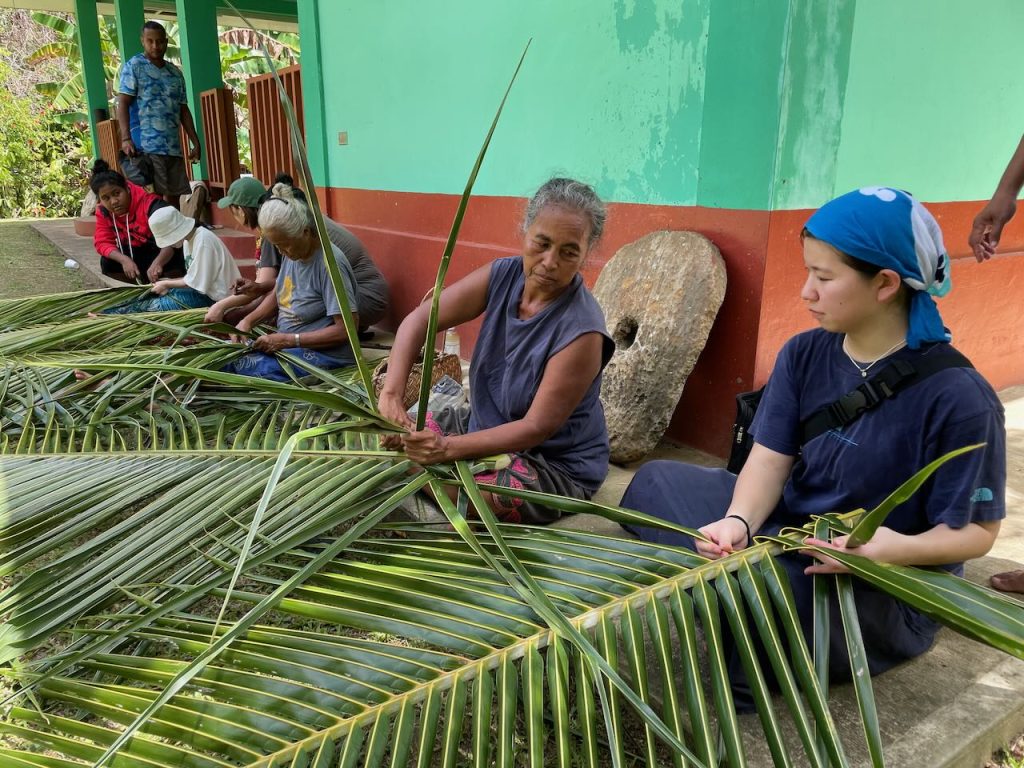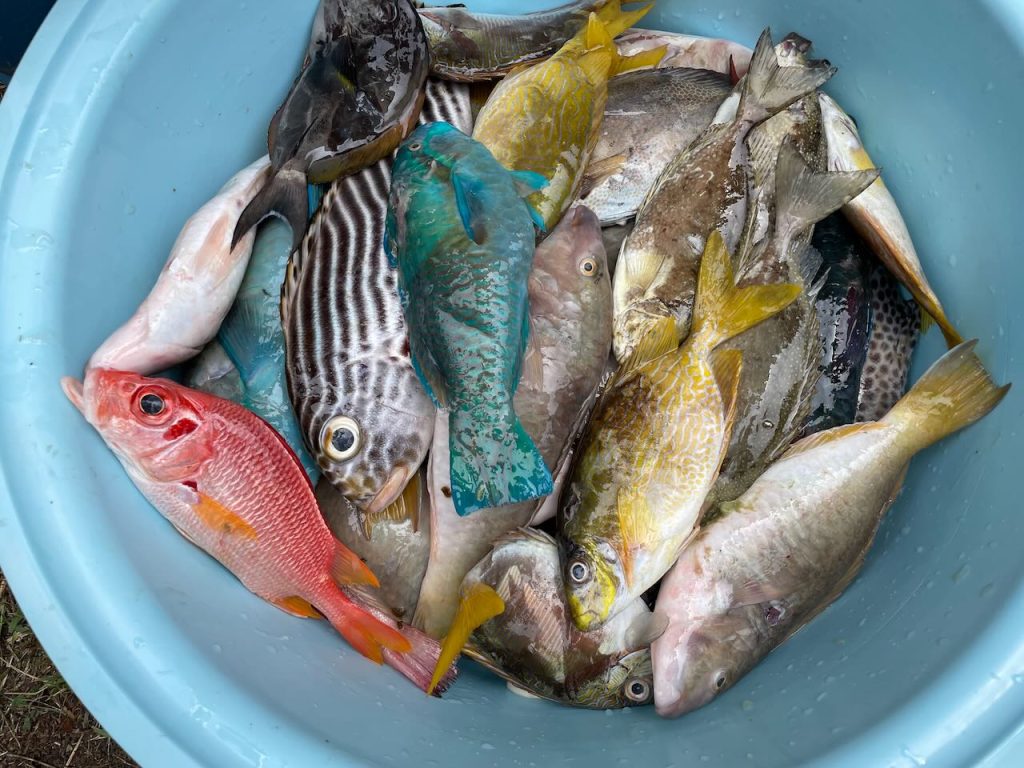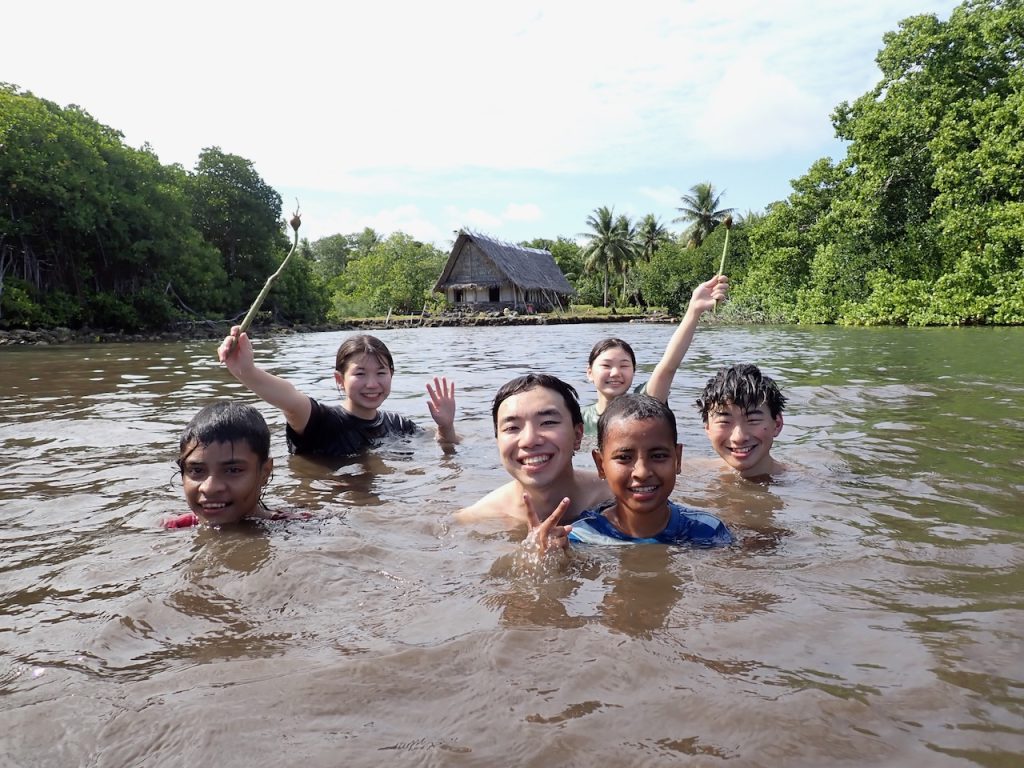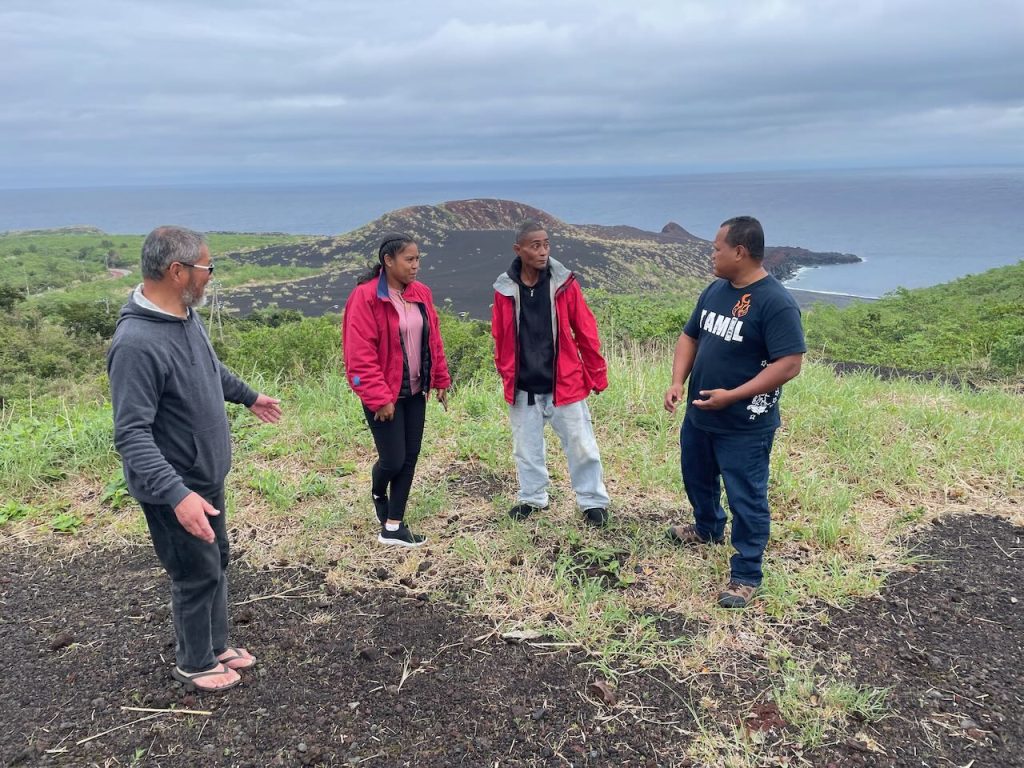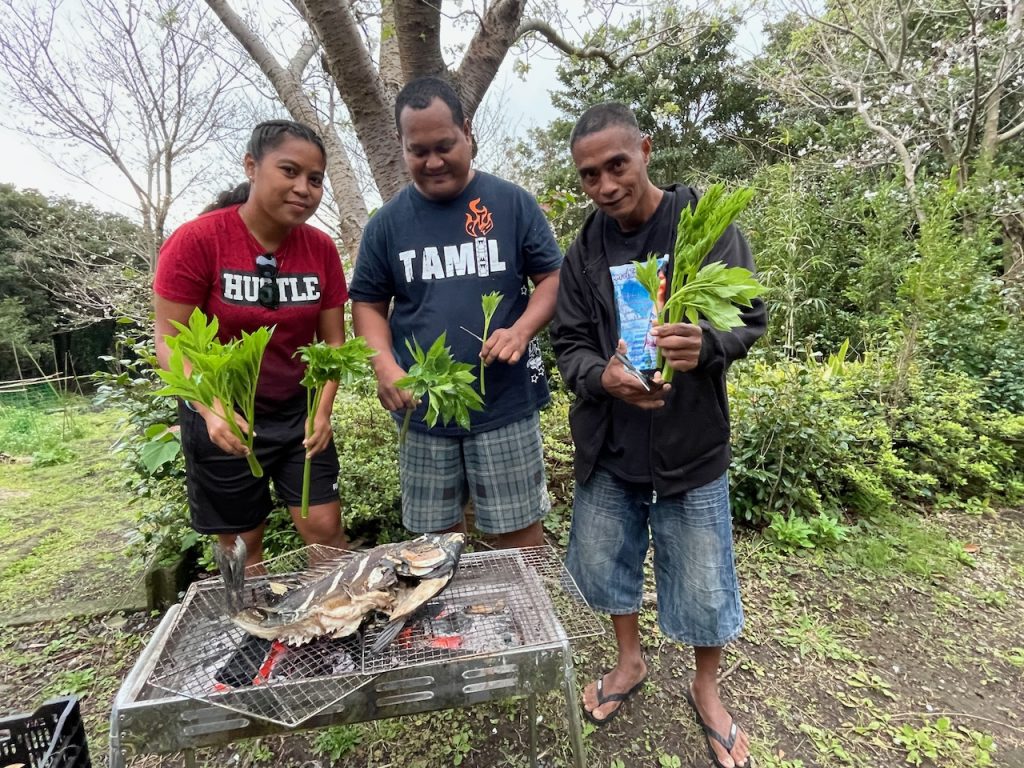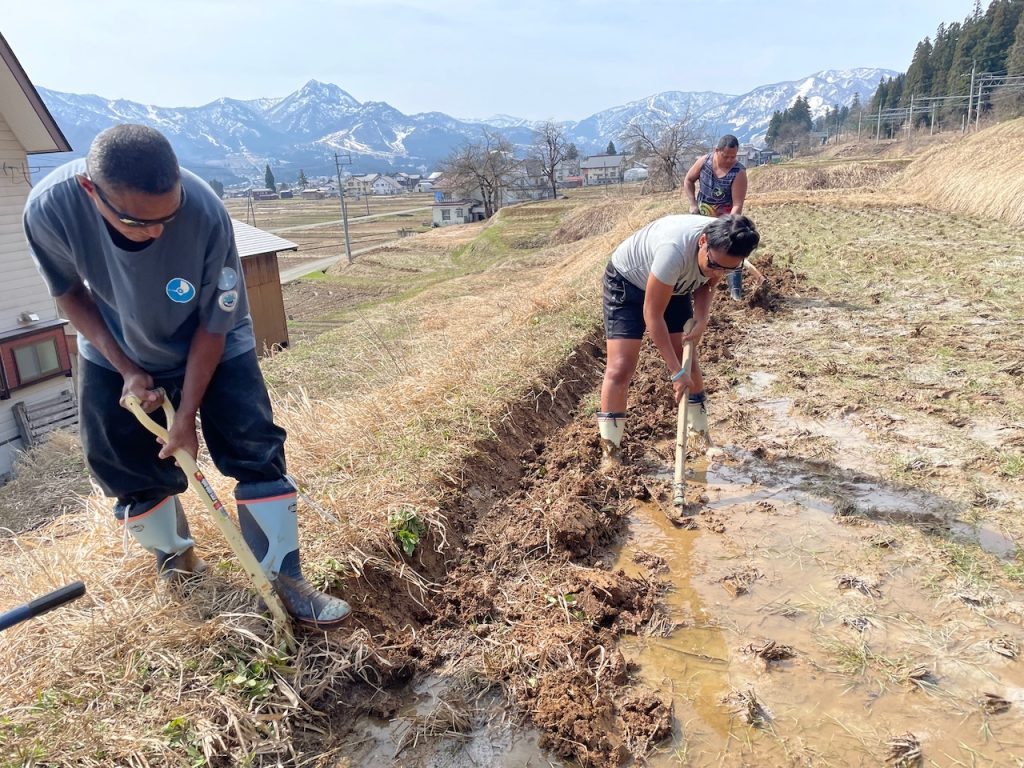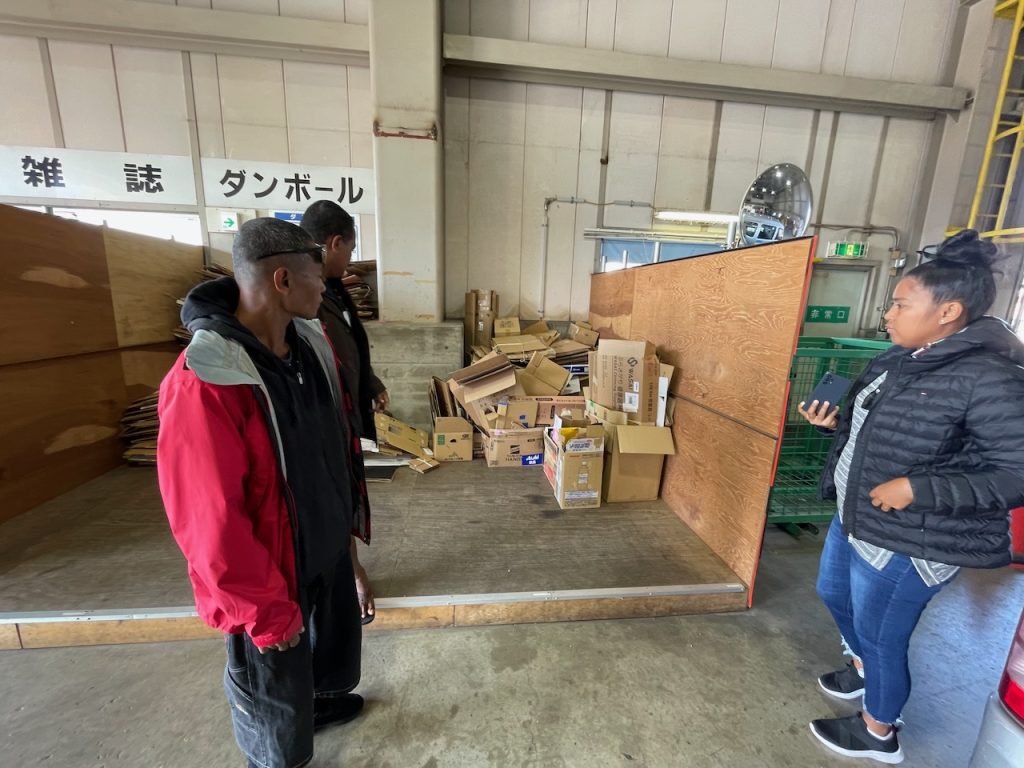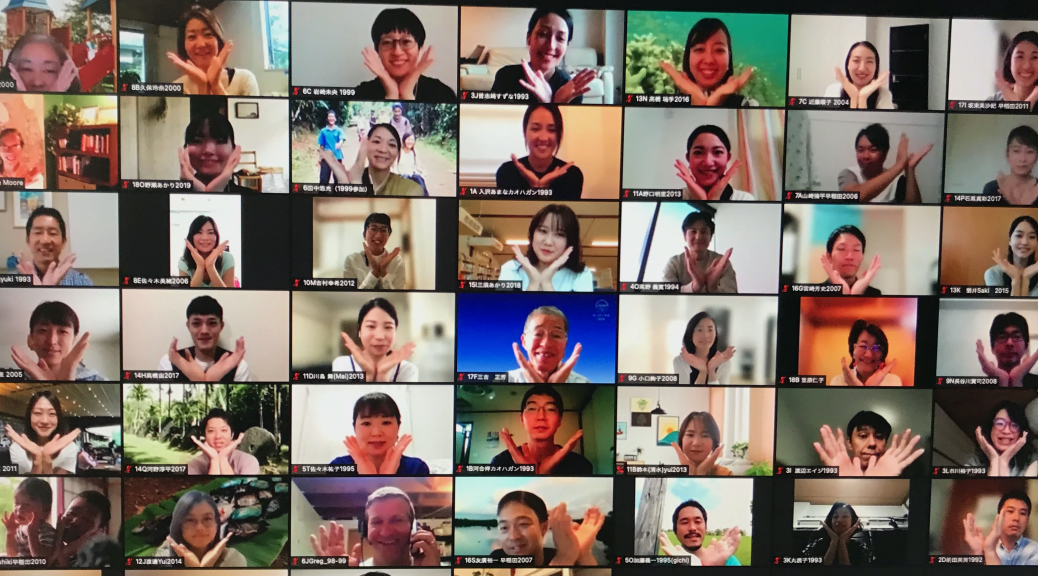Yap-Japan Cultural Exchange Program was held after 4 years absence
エコプラスのヤップ島プログラムが、2024年3月16日から24日までの日程で、4年ぶりに開催されました。
The Yap-Japan Cultural Exchange Program of ECOPLUS was held from March 16 to 24, 2024, for the first time in four years.
1992年から始まったこのプログラムですが、新型コロナの影響で2000年に中止して以来、今回は4年ぶりにやっと実施することが出来ました。久しぶりのプログラムなので、参加人数も日程も抑え気味。参加予定者の1人が当日朝に体調を崩し、大学生4人、高校生1人の計5人で、現地滞在7日間のプログラムとなりました。
This program started in 1992, but was cancelled in 2000 due to the COVID-19, and this time we were finally able to conduct the program after 4 years. Since it had been a long time since this program was held, the number of participants and the schedule were kept low. One of the expected participants fell ill on the morning of our departure, so we ended up with a total of five participants (four university students and one high school student) who stayed on the island for seven days.
滞在したのは、ヤップ島東部のタミル地区にあるアフ村。石畳の小道、ストーンパスがきれいに維持されるなど、伝統をしっかりと残した集落です。
We stayed in the village of Aff, located in the Tamil community of Yap Island. The village has well-preserved traditions, such as well-maintained stone paths.
拠点となったのは村の集会所。新しいコンクリートづくりの平屋建て。裏手に調理小屋とシャワーハウスを作るところから、スタートしました。
Our base of operations was the village meeting hall. It is a one-story building made of new concrete. We began by building a cooking hut and shower house in the back.
当初の3日間は、地元の暮らしの知恵と技を知る期間。寝るときに床に敷くマットをココヤシの大きな葉で編んで作りました。若いココヤシの実(ココナツ)を割って中のジュースを飲む方法も教わりました。料理に使うココナツミルクは、地面に落ちてしばらく経った茶色いココナツの果肉(コプラ)を削ってしぼり出します。その外側の繊維が詰まった部分は乾かすと貴重な燃料になります。無駄なく自然を使って食材や道具に変身させる伝統の知恵に、参加者はびっくりしていました。
The first three days were a time of learning about the wisdom and skills of the local way of life. We made mats for sleeping on the floor by weaving them from large coconut palm fronds. We also learned how to husk a young coconut and drink the juice inside. Coconut milk for cooking is made by grinding and squeezing the copra from old coconuts left on the ground for some time. The fibrous outer part of the coconut is dried and used as a fuel. The participants were amazed at the traditional wisdom of using nature without waste and transforming it into food and tools.

中盤では、1泊2日のホームステイをさせてもらいました。1人づつが別々の家庭にお邪魔して、家族として過ごさせてもらう貴重な体験です。
それぞれの家庭で、料理を一緒にしたり、子どもたちと遊んだりと、どっぷりと地元の暮らしに受け入れてもらいました。
2日目の夕方に戻ってくる時には、花輪を頭に乗せ、手作りのバッグや、魚やタロイモなどであふれんばかりの夕食バスケットなど、大量のおみやげでいっぱい。ホームステイ先の家族たちと楽しそうに笑い合ってのご帰還でした。
In the middle part of the program, we were given the opportunity to stay with a host family for two days and one night, with each of participant visiting a different family and spending time with them as a family.
They cooked together and played with the children at each home, and were fully accepted into the local lifestyle.
When they returned in the evening of the second day, they had wreaths ont thier heads and were filled with souvenirs, including handmade bags and dinner baskets overflowing with fish, taro, and other delicacies. They returned home with their host families, laughing happily together.
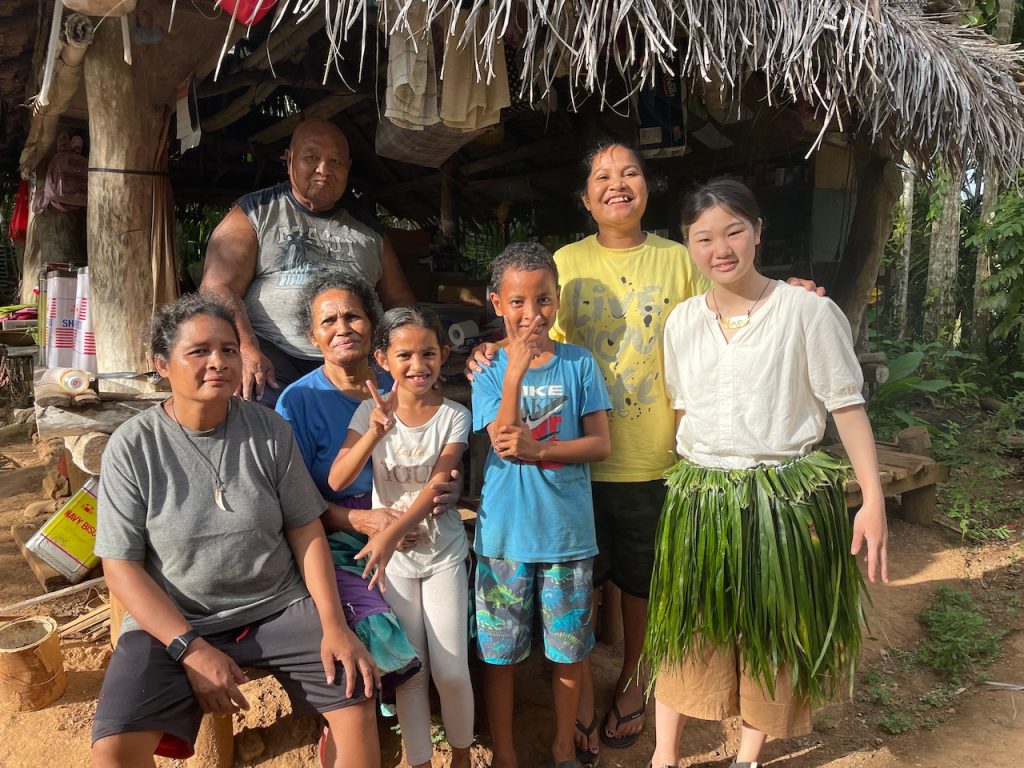
後半は、海での活動や、地元の共同作業への参加、ファエウェルパーティと息つく間もない忙しい時間となりました。
サンゴで囲まれた海は、岸辺ではマングローブ林などからの養分が多く透明度は低いのですが、外洋近くまで行くとくっきりと見通せる輝くような世界。地元の自然保護組織、タミル自然保護基金(TRCT)が取り組んでいるオオシャコガイの再生事業の現場で、かごに入れて外敵から保護されているシャコガイの藻や泥をきれいにする作業にも加わりました。
The last days of our stay were busy with activities at sea, participation in local community work, and a farewell party, leaving no time to catch our breath.
The lagoon was not very clear at the shore due to nutrients from mangrove forests and other sources, but once you get closer to the reef, you can see clearly into the shining world. We also joined a local conservation organization, the Tamil Rescue Conservation Trust (TRCT), as they worked to clean algae and mud from the giant clams, which are caged and protected from predators.

ヤップ島では23年12月からほとんど雨が降らず、1-3月の降雨量は平年の20分の1という干ばつに見舞われています。
このためアフ村では、生活用水を確保するために、数十年間放置されていた井戸を復活させようと、村人たちが埋もれた井戸を掘り起こす作業をしていました。この村の共同作業にも参加させてもらい、腰ほどの深さの穴を掘り進めました。やや谷筋の粘っこい土はシャベルにくっついてなかなか掘り進めないのですが、地元の人たちと交代しながらの2時間ほどで、肩近くまでの深さに掘り下げることが出来ました。
The island of Yap has been experiencing a drought since December 2023, with almost no rainfall, and precipitation from January to March is 1/20th of a normal year.
For this reason, the villagers of Aff began digging an old well in an effort to revive a well that had been abandoned for decades in order to secure water for daily use. We were allowed to participate in this community work and dug a hole as deep as our waists. The sticky soil in the valley line stuck to the shovel and made digging difficult to dig, but after about two hours of taking turns with the locals, we were able to dig down to almost shoulder deep.
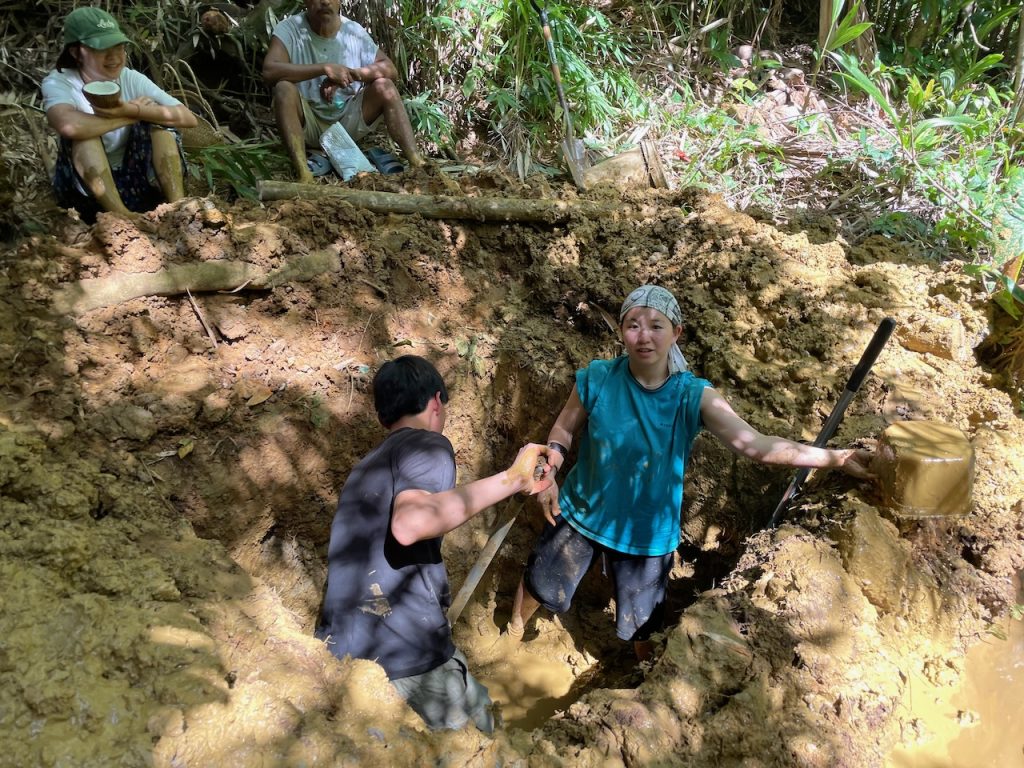
地球規模の気候変動を肌で感じると同時に、それに対応するために住民が力をあわせて努力している姿を見ることが出来ました。
ヤップ島とグアム島を結ぶ航空便は、週に2回。いずれも深夜から未明の運行です。このため日曜日の午前1時前後に到着して、次の日曜日の未明に島を離れる、まる1週間の滞在でした。これまでならあと数日は滞在するところですが、それでも参加者たちは、一つのものを多様に使う知恵と技に驚き、暮らしに学びがあふれていることにも気がついたようです。
We were able to see firsthand the effects of global climate change and how residents are working together to respond.
There are two flights per week between Yap and Guam. Both flights operate from midnight to dawn, so we arrived on Sunday morning around 1:00 a.m. and left the island before dawn the following Sunday, a full week’s stay. Although they would have been on the island for some more days, the participants were still amazed at the wisdom and skill of using one thing in many ways, and they also noticed the abundance of learning in the daily life of the island.

同じタミル地区の別の村からは、いつでも来てくれて大丈夫との連絡をもらっています。水不足ですでに時間給水が始まっていること、さらに夏の暑さも以前に比べて激しくなっていることなどから、その状況を見ながら、次回の日程を検討しています。
We have been informed by another village in the same Tamil community that they can host our group next time. We are looking at the situation and considering the next schedule as the water supply has already started on time due to the water shortage, and also the summer heat is more intense than before.

